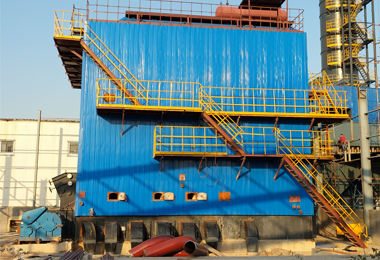
9-р сар . 29, 2024 07:50 Back to list
Oil-Fired Forced Hot Water Boiler System for Efficient Heating Solutions
The Benefits and Considerations of Oil-Fired Forced Hot Water Boilers
Oil-fired forced hot water boilers represent a reliable and efficient solution for residential and commercial heating needs. Utilizing oil as a fuel source, these boilers heat water and distribute it throughout a building via a network of pipes and radiators. Despite the growing popularity of renewable energy sources, oil-fired boilers remain a preferred choice for many, especially in areas where oil is readily available and gas lines are nonexistent.
How Oil-Fired Forced Hot Water Boilers Work
At the core of the oil-fired forced hot water boiler system is a burner that ignites the oil to produce heat. The generated heat is transferred to water within the boiler, creating hot water that circulates through pipes and radiators or underfloor heating systems. This hydroponic operation is not only efficient but also provides consistent and controllable heating throughout a building.
The process begins with the heating oil being pumped from a storage tank to the burner. The burner atomizes the oil and mixes it with air, creating a combustible mixture. This mixture is ignited, producing heat that warms a heat exchanger, which in turn heats the water. The hot water is then pumped through a closed-loop system, delivering warmth to various rooms as needed.
Advantages of Oil-Fired Boilers
One of the significant advantages of oil-fired forced hot water boilers is their ability to generate high heat output and maintain comfortable indoor temperatures even in the coldest months. They are also highly efficient, with many modern models achieving efficiency ratings above 90%. This means that a higher percentage of the fuel is converted into usable heat, resulting in lower energy costs for homeowners and businesses.
Moreover, oil has a high energy content compared to other fuels, making oil-fired boilers particularly effective for large spaces or older homes that require intensive heating. These systems are known for their robustness and longevity, often lasting 15 to 20 years with proper maintenance.
Additionally, oil is often more affordable than natural gas in certain regions, making oil-fired heating systems economically favorable
. With advanced controls and smart technology, users can now manage their heating systems more efficiently, optimizing fuel consumption and reducing overall costs.oil fired forced hot water boiler

Environmental Considerations
While oil-fired forced hot water boilers come with numerous benefits, it is crucial to consider their environmental impact. Burning oil produces carbon emissions, contributing to air pollution and climate change. However, advancements in technology are helping mitigate these effects. Modern oil boilers are designed to operate with lower emissions and higher efficiency, producing fewer pollutants.
For those concerned about their carbon footprint, heating oil companies are increasingly offering biofuels blended with regular heating oil. These biofuels are derived from renewable sources and can significantly reduce greenhouse gas emissions. Homeowners can opt for these cleaner alternatives to lessen their environmental impact while still benefiting from the efficiency of an oil-fired boiler.
Maintenance and Safety
Regular maintenance is essential to ensure that an oil-fired forced hot water boiler operates efficiently and safely. This includes annual inspections by a qualified technician, who can check for leaks, ensure proper combustion, and clean components. Homeowners should also monitor oil levels to avoid running out of fuel and keep the storage tank in good condition.
Despite the safety records of modern oil boilers, it is vital to be vigilant about potential hazards such as oil leaks and carbon monoxide emissions. Installing carbon monoxide detectors and ensuring proper ventilation can help alleviate these risks.
Conclusion
Oil-fired forced hot water boilers continue to be a dependable choice for heating, particularly in regions where oil accessibility is a factor. They provide efficient heating, long service life, and can be paired with alternative fuels for a greener solution. By understanding their operation, benefits, and maintenance needs, homeowners can make informed decisions about their heating systems, ensuring comfort and efficiency for years to come. In an era of evolving energy solutions, oil-fired boilers hold their ground as a practical option for many heating applications.
-
How to Maintain a Steam Boiler Expert Tips for Efficiency & Longevity
NewsApr.29,2025
-
Professional Steam Boiler Service AB Expert Maintenance & Repair
NewsApr.29,2025
-
Hot Water Steam Boilers Efficient Heating Solutions & Expert Tips
NewsApr.29,2025
-
Hot Water Boiler Capacity Calculation Guide Efficient Design Tips
NewsApr.28,2025
-
How to Drain a Steam Boiler Step-by-Step Safety Guide
NewsApr.28,2025
-
How to Install a Hot Water Boiler Optimal Pressure & Efficiency Guide
NewsApr.28,2025
Related PRODUCTS






















